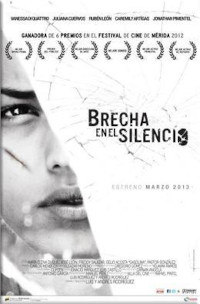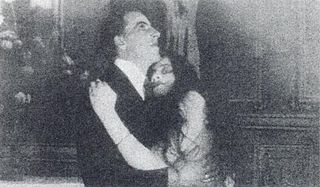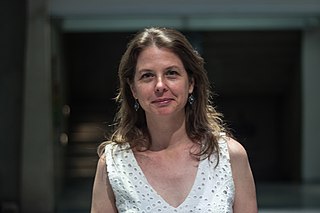Related Research Articles

Guatemala City, known nationally also as Guate, is the capital and largest city of Guatemala. It is also a municipality capital of the Guatemala Department and the most populous urban area in Central America. The city is located in the south-central part of the country, nestled in a mountain valley called Valle de la Ermita.

Postville is a village in Allamakee and Clayton counties in the U.S. state of Iowa. It lies near the junction of four counties and at the intersection of U.S. Routes 18 and 52 and Iowa Highway 51, with airport facilities in the neighboring communities of Waukon, Decorah, Monona and Prairie du Chien. The population was 2,503 at the time of the 2020 census, up from 2,273 in 2000. The village is in Allamakee County's southwestern corner and Clayton County's northwestern corner in a quad county, or four-corner region, where four counties intersect. Winneshiek County is just to the west and Fayette County is just to the southwest of Postville.

Cinema of Colombia refers to film productions made in Colombia, or considered Colombian for other reasons. Colombian cinema, like any national cinema, is a historical process with industrial and artistic aspects.

The art of motion-picture making within Spain or by Spanish filmmakers abroad is collectively known as Spanish Cinema.

Agriprocessors was the corporate identity of a slaughterhouse and meat-packaging factory based in Postville, Iowa, best known as a facility for the glatt kosher processing of cattle, as well as chicken, turkey, duck, and lamb. Agriprocessors' meat and poultry products were marketed under the brand Iowa Best Beef. Its kosher products were marketed under various labels, including Aaron’s Best, Shor Habor, Supreme Kosher, and Rubashkins.

The cinema of Uruguay has a role in the culture of Uruguay and is a part of Latin American cinema. Since the late 1990s, Uruguayan cinema has undergone a process of evolution, during which its films have received positive reviews and been internationally recognized. Over 120 films, fiction and non-fiction, have been produced since then.
Jaka Bizilj is a German writer, promoter, and film producer. He is also the founder and chairman of the Cinema for Peace Foundation.
Sentinels of Silence is a 1971 short documentary film on ancient Mexican civilizations. The film was produced by Manuel Arango, and directed and written by the filmmaker Robert Amram, and is notable for being the first and only short film to win two Academy Awards.

The Postville raid was a raid at the Agriprocessors, Inc., kosher slaughterhouse and meat packing plant in Postville, Iowa, on May 12, 2008, executed by the U.S. Immigration and Customs Enforcement (ICE) division of the Department of Homeland Security together with other agencies.

Breach in the Silence is a 2012 Venezuelan drama film directed by Luis Rodríguez and Andrés Rodríguez. The film was selected as the Venezuelan entry for the Best Foreign Language Film at the 86th Academy Awards, but it was not nominated.

The Cinema of Bolivia comprises the film and videos made within the nation of Bolivia or by Bolivian filmmakers abroad. Though the country's film infrastructure is too small to be considered a film industry, Bolivia has a rich film history. Bolivia has consistently produced feature-length films since the 1920s, many of which are documentary or take a documentary approach to their subject. Film historian José Sánchez-H has observed that the predominant theme of many Bolivian films is the country's indigenous cultures and political oppression.

La tragedia del silencio is a Colombian silent melodrama film directed by Arturo Acevedo Vallarino and first screened on 18 July 1924 at the Faenza theatre in Bogotá. Filmed in black and white, it tells the story of a man suffering from leprosy. It was the first Colombian film during the silent film era with a film score, which was performed during the projection and was written by Alberto Urdaneta Forero.
The Silence of Neto is a 1994 Guatemalan drama film directed by Luis Argueta. The film was selected as the Guatemalan entry for the Best Foreign Language Film at the 67th Academy Awards, but was not accepted as a nominee. It was the first time Guatemala had sent a film.
Gloria Victoria Rolando Casamayor, known as Gloria Rolando, is a Cuban filmmaker and screenwriter. Her career as a director spans more than 35 years at the Cuban national film institute ICAIC, and she also heads Imágenes del Caribe, an independent film-making group. Her films, such as Reshipment (2014), characteristically document the history of people of the African diaspora.

Chelo Alvarez-Stehle is a Spanish and American journalist and documentary filmmaker. In Japan, she worked as managing editor for International Press En Español weekly and as Tokyo correspondent for El Mundo daily. As a documentary filmmaker she is best known for Sands of Silence [es], winner of the 59th Southern California Journalism Awards by the Los Angeles Press Club for Best Feature Documentary.

The cinema of Costa Rica comprises the art of film and creative movies made within the nation of Costa Rica or by Costa Rican filmmakers abroad.

Sands of Silence: Waves of Courage is a 2016 documentary film that addresses the spectrum of sexual violence, from child sexual abuse and clergy abuse to rape and sex trafficking. It was directed, written and produced by filmmaker Chelo Alvarez-Stehle.

The Silence of Others is an American–Spanish documentary film written and directed by Almudena Carracedo and Robert Bahar, which tells the story of the silenced fight of the victims of the dictatorship of Francisco Franco.

Almudena Carracedo Verde is a Spanish filmmaker. She received an Emmy Award in 2008 for Made in L.A., which was praised by The New York Times as "an excellent documentary about the most basic human dignity." In 2019, she received the Goya Award for best documentary film for The Silence of Others.
References
- 1 2 3 Lemus, Juan Carlos (July 27, 2003). "Cineasta Luis Argueta". Prensa Libre (in Spanish). Archived from the original on July 10, 2007. Retrieved January 25, 2010.
- 1 2 Shea, Maureen E. (2001). Culture and customs of Guatemala . Greenwood Publishing Group. pp. 71–72. ISBN 978-0-313-30596-2.
Luis Argueta.
- ↑ "Share: ShareThis Print Comment Back Home Free Friday flicks bring international movies to East Somerville". Wicked Local Somerville. Somerville Journal. GateHouse News Service. August 27, 2007. Archived from the original on February 9, 2013. Retrieved January 25, 2010.
- ↑ Horn, John (January 20, 1995). "Oscars are gold for foreign films". Daily News . AP . Retrieved January 25, 2010.
- ↑ Marx, Gary (July 31, 1995). "Breaking the silence; Luis Argueta hopes his film can help resolve Guatemala's conflicts". Chicago Tribune . Archived from the original on January 31, 2013. Retrieved January 25, 2010.
- ↑ Collect Call
- 1 2 Luis Argueta at IMDb
- ↑ "Announcing the 2019 Harris Wofford Global Citizen Award Winner: Luis Argueta of Guatemala". National Peace Corp Association. Retrieved 6 October 2019.